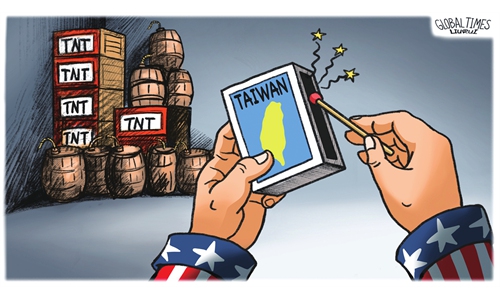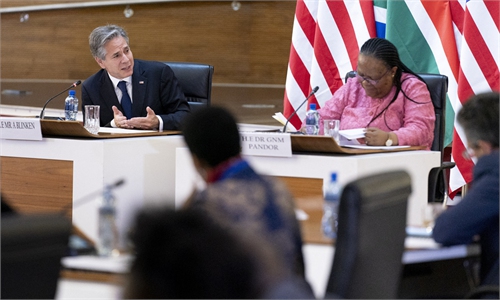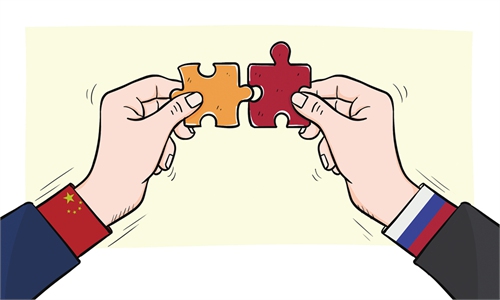Ukraine war a warning to small countries over joining great power conflicts as a junior partner: Friendship medalist
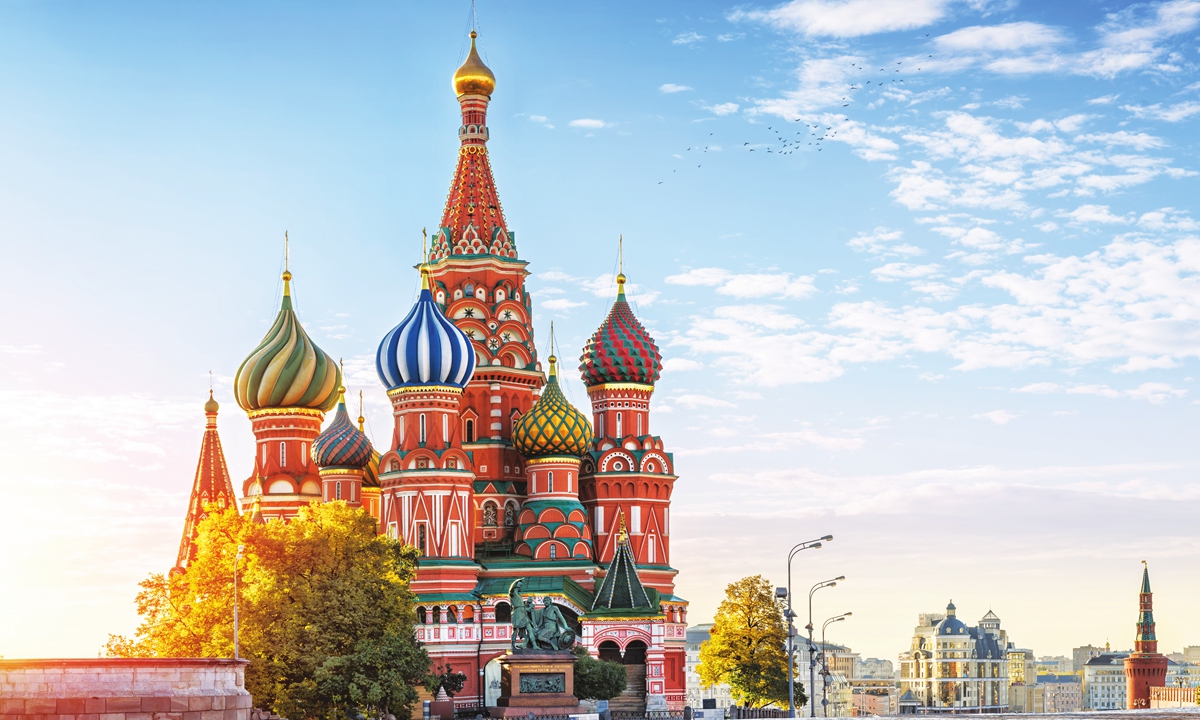
Photo: VCG
Editor's Note:During the past decade, the world has increasingly witnessed a trend of "the East is rising, and the West is declining" in the spheres of economy, security and discourse power. Western countries, particularly the US, plagued by internal woes, have sought the old path of passing the buck and instigating turmoil elsewhere to ease their own pressure. China, representative of the emerging countries, is proposing new solutions to global problems. By advocating win-win development, facilitating consultation and reconciliation and proposing a balanced and effective security mechanism, China is striving to build a community with a shared future for mankind.
In the 12th piece of the series, Galina Kulikova (Kulikova), the First Deputy Chairperson of the Russia-China Friendship Association (RCFA), talked with Global Times (GT) reporter Xia Wenxin about several issues, including the role of her organization in promoting friendship and cooperation between the two countries, as well as her views on Russia-Ukraine conflict.
GT: Known as a people-to-people diplomat for China-Russia relations, you have worked in the RCFA for decades. Can you briefly tell us the role of this organization in China-Russia ties?
Kulikova: On October 29 this year, the RCFA, the first friendship association in our country [Russia] with people from foreign countries, will celebrate its 65th anniversary.
My life and work in all these years have been inseparably connected with this organization, the purpose of which is to promote mutual understanding, friendship, and cooperation between the peoples of Russia and China.
Russia and China were allies in the fight against German fascism and Japanese militarism; they went through the hardest trials and suffered the greatest loss of life. Our countries still cherish the glorious traditions of shared history and hold similar views of World War II's causes, process and outcome. Together we oppose attempts to revise and falsify history and glorify war criminals and their accomplices.
Interactions between Russia and China on foreign policy issues are an example of responsible behaviors by great powers in the international arena.
In the context of the progressive development of bilateral relations, a joint statement about the development of the Russia-China comprehensive strategic partnership of coordination for a new era was published on June 5, 2019. Another one on the 20th anniversary of the Treaty of Good-Neighborliness and Friendly Cooperation between our countries was issued on June 28, 2021, deciding the extension of the Treaty for five years.
Throughout the over 20 years since the Treaty of Good-Neighborliness and Friendly Cooperation was signed, the RCFA has been the only organization in our country holding annual ceremonies and round tables to mark the anniversaries of the Treaty and the establishment of diplomatic relations between our countries. It has also been the only one that has organized hundreds of events to mark significant episodes in the history of China and its relations with Russia and remember important and outstanding Chinese and Russian figures.
RCFA has actively participated in eight grand, state-scale events held in Russia and China since 2006. Currently, we are actively involved in the Year of Russia-China Cooperation in the field of physical culture and sports development, holding various sports competitions with the participation of Russian and Chinese youth.
Today, the branches of our organization operate in 22 regions in Russia, and the number is likely to grow to 30 by the 65th anniversary of the RCFA. These branches contribute greatly to the development of social basis in Russia-China relations. Thanks to the activities of our local subdivisions, the public in different Russian regions can receive regular information about events taking place in China and Russia-China relations.
The activities of the RCFA are highly appreciated by the leaders of Russia and China. The messages and greetings that the RCFA has received from the leaders of our countries have repeatedly emphasized the role the organization plays in the establishment, restoration, and now the development of Russian-Chinese social ties and contacts, as well as Russia-China relations as a whole. "The activity of the RCFA is an integral component of the whole complex of Russia-China relations." - This is what today's Russian Foreign Ministry says about our activity when celebrating the 50th anniversary of the RCFA.
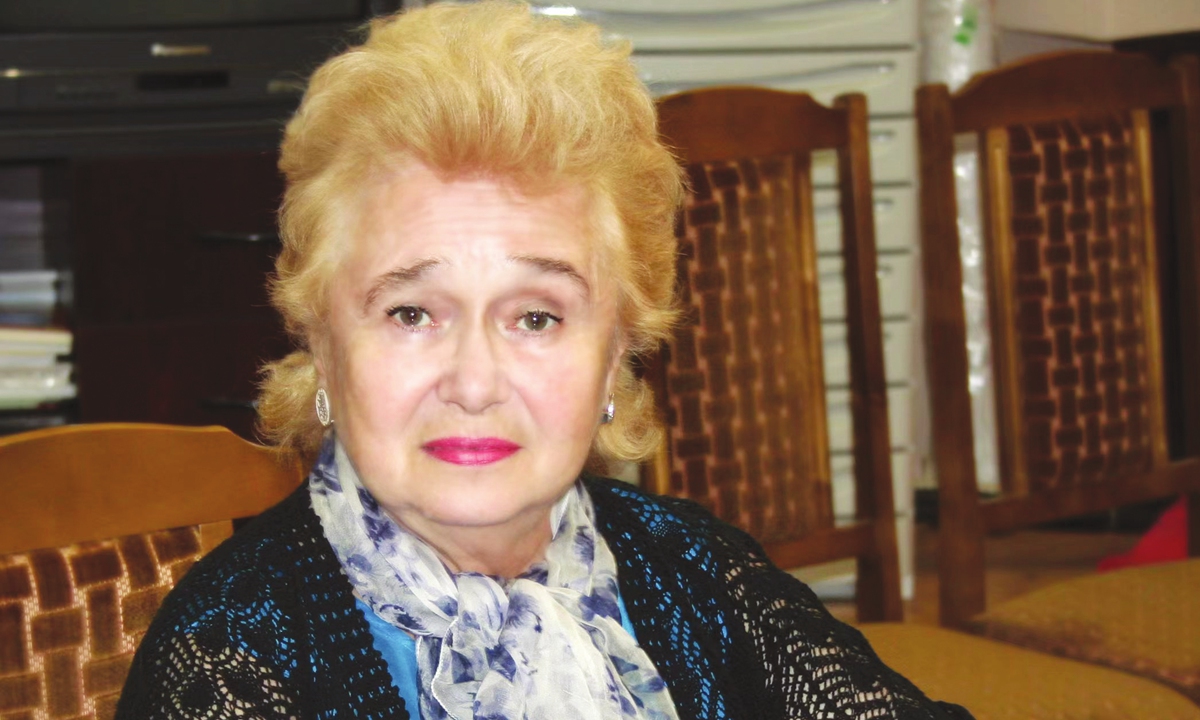
Galina Kulikova Photo: Courtesy of Kulikova
GT: In 2019, Chinese President Xi Jinping decorated you with the Friendship Medal, making you the second Russian to receive this distinct honor after Russian President Vladimir Putin. What was your feeling back then?Kulikova: It isn't easy to put into words my feelings when I received the Friendship Medal from President Xi. There were feelings of extraordinary joy and pride, as well as great gratitude to the leader of the country that I consider my second homeland. It was not only a top honor, but also a great responsibility.
In numerous interviews with the Chinese media in Beijing, I said that the Friendship Medal awarded to me does not belong to me alone. This major award belongs to thousands and thousands of my colleagues who have participated in the RCFA activities for many decades, dedicating their work to the cause of the establishment, restoration, and development of mutual understanding, friendship, and cooperation between the peoples of our countries.
At the same time, the Friendship Medal is an award for the Russians led by President Putin. They actively support the policy of our country aimed at developing a comprehensive strategic partnership of coordination between China and Russia for a new era.
On May 18 this year, President Putin signed a decree awarding me with the Order of Friendship, a state decoration of Russia. This award was given to me on June 1. The prestigious awards of both the Russian and Chinese leaders have acknowledged my 65 years of work in the name of good-neighborliness and friendly cooperation between our countries and peoples. They obligate me to continue promoting comprehensive humanitarian and practical cooperation between China and Russia in the interests of the peoples of our countries. I also feel responsible for further strengthening the power of my homeland, Russia, advocating peace and security for our nations and peoples, as well as peace and security in the world.
GT: How do you view the development of China-Russia relations in the past decade?
Kulikova: Russia highly appreciates that the Russia-China relations of comprehensive partnership and strategic cooperation have reached an unprecedented level in a new era and, as President Putin said, "have become a model of efficiency, responsibility, and aspiration for the future."
The Treaty of Good-Neighborliness and Friendly Cooperation defined the basic principles of interaction between our countries. Russia-China bilateral relations are based on equality, consideration for each other's interests.
Russia and China actively advocate a multipolar world. Russia supports the Global Security Initiative proposed by Chinese President Xi Jinping at the Boao Forum for Asia. Bilateral strategic cooperation is an important force in shaping a multipolar world and democratizing international relations.
The China-proposed Belt and Road Initiative and its conjunction with the Eurasian Economic Union lays a reliable basis for the creation of the Greater Eurasian Partnership - in other words, the successful development of many countries in Europe and Asia in the future, and as a result, the building of a community with a shared future for mankind.
The advancement of strategic cooperation between Russian President Putin and Chinese President Xi is now the basis and advantage of the whole complex of Russia-China relations. This is confirmed by the phone call between the two heads of state on June 15, during which the successful development of Russia-China relations was mentioned, despite all kinds of changes in the international arena.
GT: Regarding the Russia-Ukraine conflict, the US tries to lead global opinion against Russia. However, many developing countries, in fact, don't take Washington's side. Some believe that Russia is trying to break the unfair international order for these states. What is your take on this?
Kulikova: The situation between Russia and Ukraine is still at the center of global attention today. The role of the West, led by the US, in the Ukraine issue is becoming more apparent every day: The crisis is a long-term destructive route of the West against Russia, primarily in defense of a unipolar world order led by the US. The West has always viewed Ukraine as one of the instruments to contain Russia.
What is happening in Ukraine is a solid warning to middle powers and small countries against interference and involvement in great powers conflict as a junior partner of one of them. Ukraine, which has staked everything on the US and NATO, is in devastation. And the West and the US only supply it with weapons, but they cannot protect it.
Today, many countries not only in Asia, Africa, and Latin America, but also in Europe, are beginning to realize this.
GT: The US has weaponized the concept of democracy. It has also categorized countries it sees as rivals, such as China and Russia, as authoritarian/non-democratic. Do you think such a division is justified? What are the general reactions of other countries?
Kulikova: There is no single model of democracy; therefore, it is necessary to respect the rights of sovereign states to determine their own path of development. It is unacceptable to interfere in the internal affairs of other sovereign states under the pretext of "promoting democracy."
The US uses democracy to classify countries into democratic and "authoritarian" (or non-democratic) ones. It considers its rivals - including Russia, China, and some other countries - "authoritarian" and, thus, often doesn't invite them to participate in the events it holds.
For instance, around 110 countries and regions participated in the "Summit for Democracy" held in the US last December, but Russia and China - permanent members of the UN Security Council - were not invited by the organizers. The issues of "strengthening democracy at home and supporting democracies and human rights worldwide" were discussed at the summit, which, in practice, means meddling in other countries' internal affairs.
Another example of Washington's subjective approach to democracy is the Ninth Summit of the Americas held in June this year in Los Angeles - a meeting of heads of state and government under the auspices of the Organization of American States. According to US President Joe Biden, one of the goals of the summit was to provide economic assistance to countries that are regarded as "close friends who share our [Washington's] values."
The Biden administration has promised a lot but done little. Today, China is overtaking the US in providing economic assistance to countries on the American continent. Russia is also actively developing cooperation with Latin American countries. Therefore, Biden is obviously trying to separate Latin America from Russia and China by hosting the Ninth Summit of the Americas. This is what democracy is, according to Biden.
